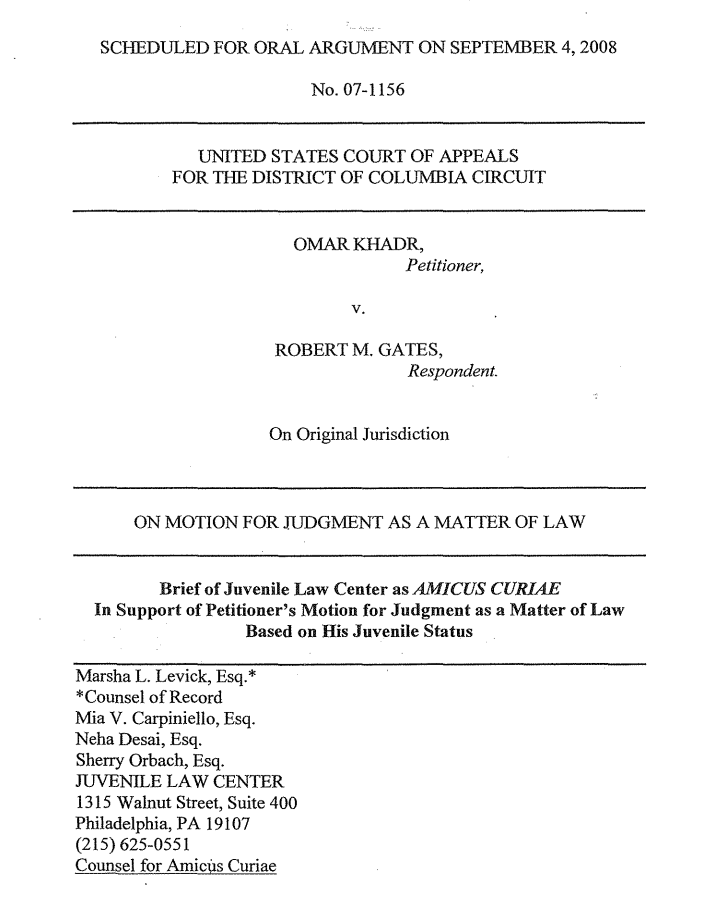
Summary of Argument
This case calls upon the Court to determine whether Omar Ahmed Khadr was appropriately classified as an "enemy combatant" by the Combatant Status Review Tribunal. Khadr was only fifteen years old when he was taken prisoner by United States forces on July 27, 2002. Amicus Curiae Juvenile Law Center ("JLC") supports Khadr's argument before this Court that classifying a child soldier as an "enemy combatant" contravenes binding domestic and international law. As a consequence of the government's erroneous determination that Khadr is an enemy combatant, he has been confined with adult prisoners throughout his detention at Guantanamo, and thus denied access to age-appropriate education,. and physical and mental health services. Perhaps most significantly, he has been denied the opportunity to rehabilitate and reintegrate into society. Amicus Curiae will demonstrate how the government's failure to provide basic educational, physical health and mental health services to Khadr is incompatible with federal and international law, national standards, and even the Department of Defense's own policies regarding juvenile detainees.